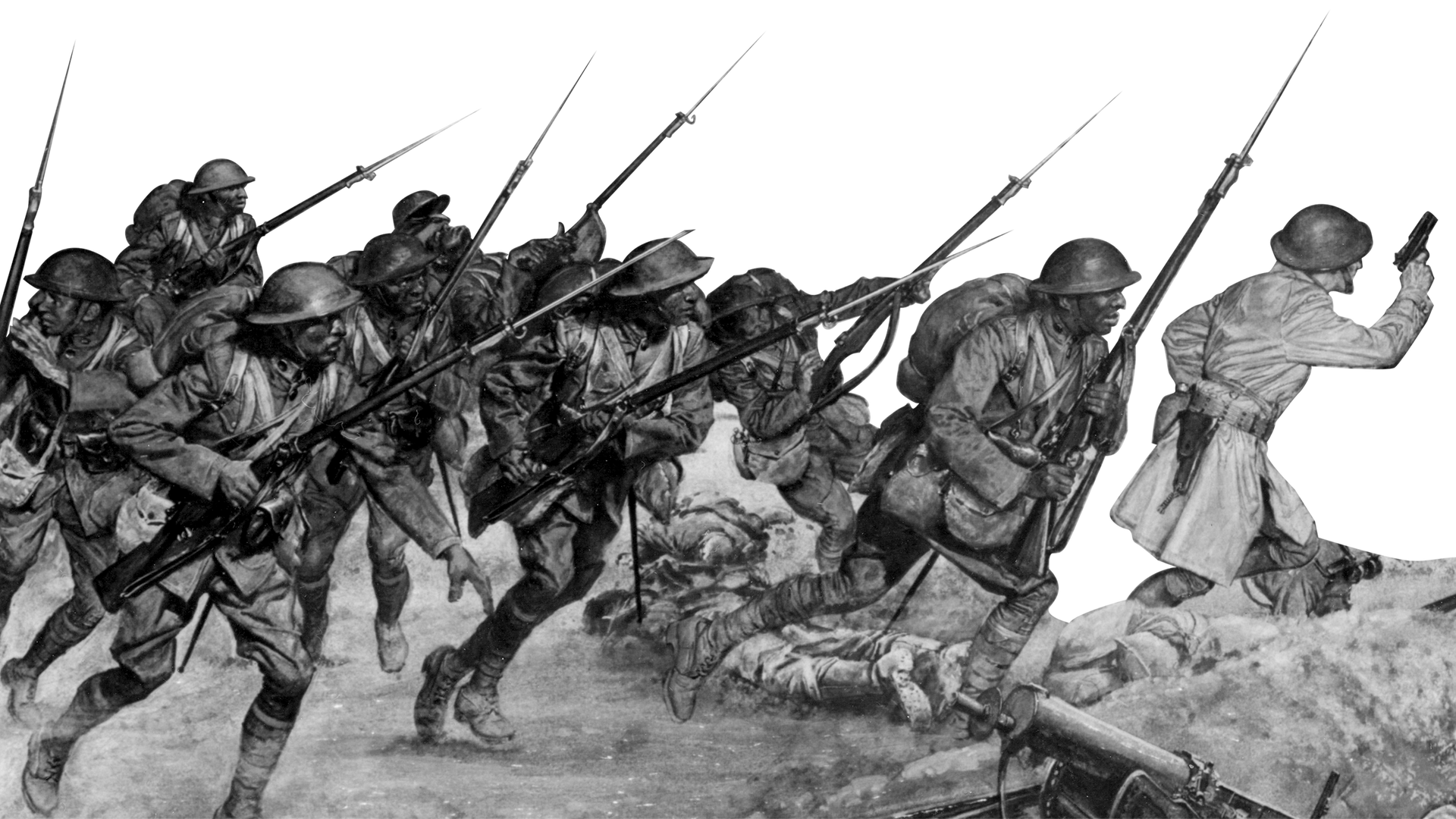
Fighting Like Hell


WWI
1917—1918
Fighting Like Hell
In World War I (1917–1918), over a quarter million African Americans served in the greatest conflict of its time. The Harlem Hellfighters, legendary American heroes, found themselves fighting under French commanders.
ShowHide Transcript
Over a quarter million African Americans served in the greatest conflict of its time.
When World War I broke out, Henry Johnson, a New York railroad porter, enlisted in an all-Black unit of the National Guard that became known as the Harlem Hellfighters. Little did he know that he would soon be the hero of a battle that would carry his name.
Johnson was assigned to labor duties rather than combat, despite the protests of his unit who wanted to prove themselves on the front line. The French direly needed troops, however, and U.S. leadership agreed to lend them the service of Johnson’s unit.
Thus, the Harlem Hellfighters, legendary American heroes, found themselves fighting under French commanders.
In May 1918, Henry Johnson was on watch with Needham Roberts in France’s Argonne Forest when they heard the chilling sound of barbed wire being cut. German soldiers were launching a night-raid on their position.
Johnson fired a warning flare—the harsh red light illuminated 30 German troops advancing on their position. The two men opened fire. The Germans answered with grenades. Roberts took the worst of it while Johnson, also wounded, held his ground.
He fired into the attacking troops, killing one outright. When they stormed his dugout, he clubbed another with his rifle and knifed two more. Johnson was shot, but in return cut down his attacker with his bolo knife. The German troops fled in panic—Johnson drove them off with a final volley of grenades.
Henry Johnson singlehandedly wounded between ten and twenty attackers. He killed at least four, rescued his fellow soldier, and suffered 21 wounds in the process.
The French awarded him the Croix de Guerre with a golden palm for extraordinary valor. Johnson was the first U.S. soldier to receive the award.
Johnson had been given the nickname “Black Death.” He wasn’t alone in gaining a reputation for combat prowess. Eugene Jacques Bullard, the first Black combat pilot, earned the nickname “the Black Swallow of Death.”
Bullard, born in the United States to a Creek Indian mother and Afro-Caribbean father, left his native Georgia as a teenager. He traveled Europe as a boxer and performer before settling in Paris.
In 1914, Bullard enlisted in the French Foreign Legion, the only unit in which foreigners could serve. He fought at the Somme and along the Meuse as a machine gunner.
Bullard transferred to the 170th French Infantry, nicknamed “The Swallows of Death.” He fought with them at Verdun, suffering a severe wound in 1916 and earning the Croix de Guerre for acts of valor.
When he recovered, Bullard volunteered as a gunner with the new French Air Service, took flight training, and became a pilot in 1917. As a corporal, Bullard fought in more than 20 combat missions and during his service earned 15 French medals.
While Bullard may have fought for France, he was posthumously commissioned by the U.S. Air Force as a second lieutenant.
It took decades for the American military to recognize Henry Johnson as well. President Barack Obama posthumously awarded him the Medal of Honor in 2015. And in 2021, the Harlem Hellfighters were awarded the Congressional Gold Medal.
Henry Johnson singlehandedly wounded between ten and twenty attackers. He killed at least four, rescued his fellow soldier, and suffered 21 wounds in the process.